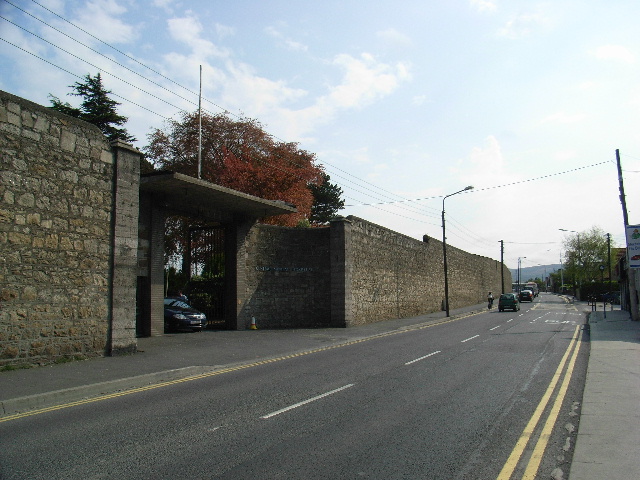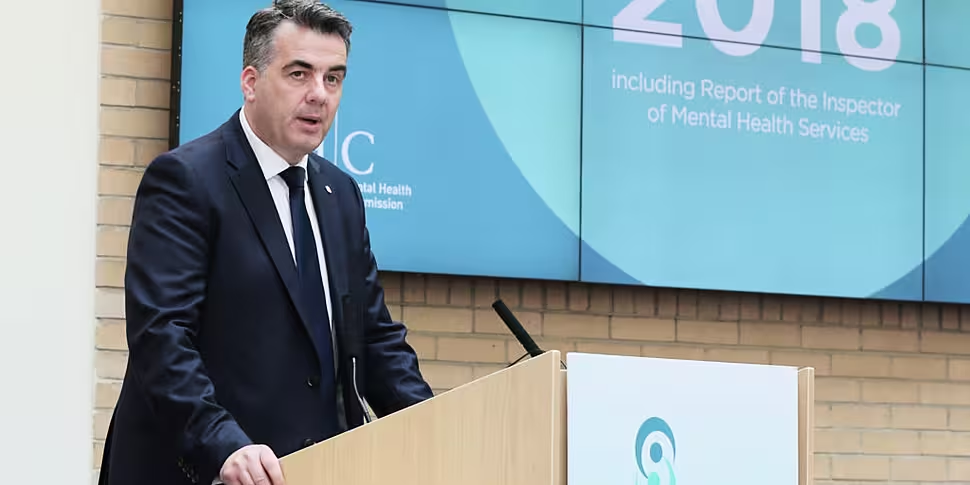A new report shows there has been a 57% increase in episodes of restrictive practices in Ireland over the past 10 years.
This includes incidents of physical restraint, mechanical restraint and seclusion at mental health facilities.
The Mental Health Commission says the report reveals "worrying trends in seclusion and restraint".
It has written to the Health Service Executive (HSE), seeking a clear strategy and implementation plan that will contribute towards "a significant reduction in episodes of restrictive practices across the country's mental health services."
The report documents the use of seclusion, mechanical restraint and physical restraint in all approved centres for the care and treatment of those suffering from mental illness during the years 2017 and 2018.
However, it also draws comparisons with figures reported by the Mental Health Commission in 2008 - the year the mental health regulator first started reporting on restrictive practices across approved units.
The commission reported 4,765 combined episodes of physical restraint and seclusion in 2008.
In contrast, it has reported that there were 7,420 episodes of restrictive practices reported to the commission in 2017, and 7,464 in 2018.
The 2018 figure equates to a 57% increase in the total reported for 2008.
In terms of intervention types, the report revealed an 18% increase in episodes of physical restraint over a 12-month period.
This saw 5,665 episodes recorded in 2018 compared to 4,773 in 2017.
Physical restraint was used in 85% of centres in 2018, as opposed to 81% in 2017 - while 1,207 people were physically restrained in 2018, 82 more people than in 2017.
There were 1,799 episodes of seclusion in 2018, compared to 1,392 in 2017 - a 29% increase year-on-year.
 The Central Mental Hospital in Dublin | File photo
The Central Mental Hospital in Dublin | File photoThe report also noted that seclusion was used in 42% of centres in 2018, and that there were 317 episodes in 2018 where a person was secluded for more than 24 hours.
There were also 81 episodes where a person was secluded for over 72 hours.
In contrast, the use of mechanical restraint was low in 2017 and 2018.
Only one approved centre - the Central Mental Hospital - reported the use of mechanical restraint, with all episodes involving the use of handcuffs.
The chief executive of the Mental Health Commission, John Farrelly, says that while the report clearly demonstrated an open culture of reporting, it also evidenced a lack of oversight and governance in the use of restrictive practices by the HSE.
"It's very heartening that the people working in our mental health services are both forthcoming and honest when it comes to reporting instances of restrictive practices.
"We want that to continue, and services and their staff should be complemented for their courage and candour in this respect.
"However, we also have to acknowledge that we have a cultural issue when it comes to the use of restrictive practices in this country that we need to tackle without delay.
"When one considers that there is no evidence of a therapeutic benefit associated with the use of restrictive practices, and limited evidence of restrictive practices reducing behaviours of violence and aggression, it is disappointing to note that episodes of restrictive practices in this country have increased by 57% in just 10 years.
"The legal basis for restrictive practices must always be interrogated if we are to vindicate the human rights of persons accessing services.
"Every such person has a right to dignity, bodily integrity, privacy and autonomy."
Earlier this year, the commission took the decision to prosecute the HSE - following reports by its inspectors of conditions at the Department of Psychiatry at St Luke's Hospital, Kilkenny - that referenced reports of hair and hardened food and other dirt on the floor of the unit's seclusion room, along with fluid stains on the room's walls and windows by the commission's inspections.
"The conditions in St Luke's demonstrated a clear disrespect for mental health patients and while we have not found evidence of similar conditions in any other seclusion room since then, the fact that seclusion is still being used in 42% of approved centres today is a worrying statistic and one that we would like to see drop significantly."
Main image: John Farrelly, CEO of the Mental Health Commission, speaking at the launch of the commission's 2018 annual report | Image: Leon Farrell/Photocall Ireland









